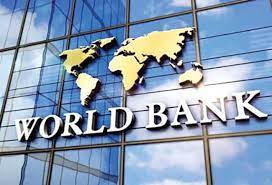- First tranche of $ 250 m under Resilience, Stability and Economic Turnaround (RESET) Development Policy Operation was released in June
The World Bank said on Wednesday it has released the second tranche of the $ 500 million Sri Lanka Resilience, Stability and Economic Turnaround (RESET) Development Policy Operation (DPO), considering the continued satisfactory progress made by Government with the reform program.
The RESET DPO, which provides budget support to the Government was approved on 28 June 2023. World Bank said this is the first in a series that supports foundational reforms to restore macroeconomic stability, mitigate the impacts on the poor and vulnerable, and support an inclusive, private sector-led recovery.
This support is contingent on prior actions or milestones that need to be completed before the funding is released.
The second tranche is now being released after assessing that Government continues to make satisfactory progress in carrying out the broader reform program, the macroeconomic policy framework remains adequate, and the Banking (Special Provisions) Act, aimed at strengthening the deposit insurance and problem bank resolution framework, has been enacted.
World Bank Country Director for Maldives, Nepal and Sri Lanka Faris H. Hadad-Zervos said: “Continued momentum on economic and structural reforms is critical not only to stabilise the economy, but also to unleash its potential for private sector-led growth and transformation.”
“The RESET DPO supports the Government with these foundational reforms to bring the economy to full recovery, boost Sri Lanka’s competitiveness and growth potential, and encourage private sector investment and participation for inclusive and resilient growth and job creation. We have coordinated and sequenced all our support with the IMF, ADB and other development partners,” he added.
The first tranche of the RESET DPO for $250 million was released in June 2023 upon the completion of seven reform prior actions across three pillars: economic governance; growth and competitiveness; and protecting the poor and vulnerable.

